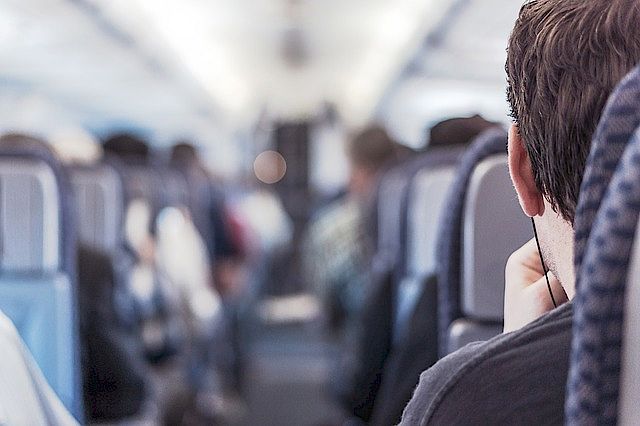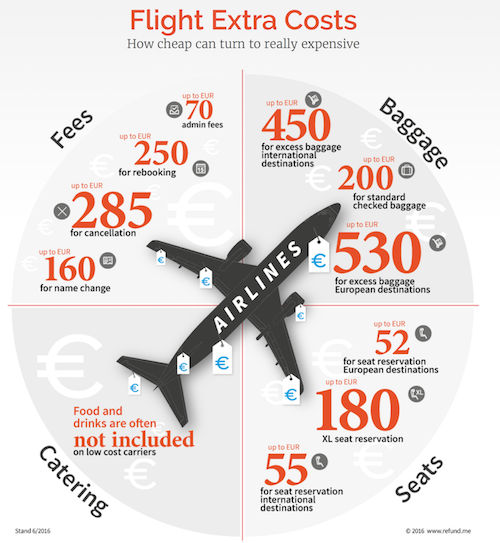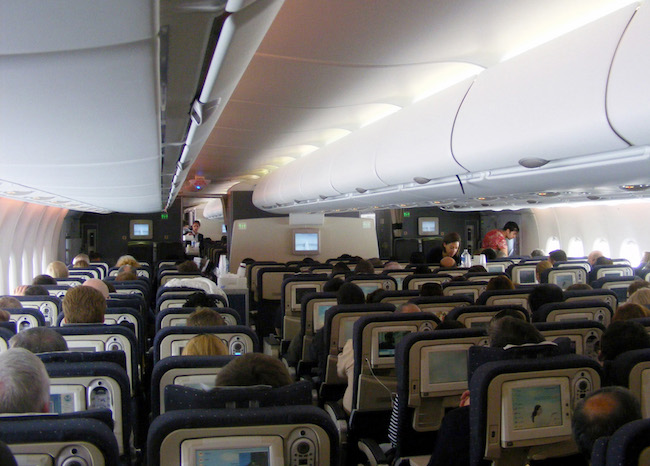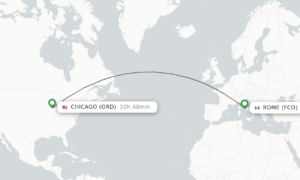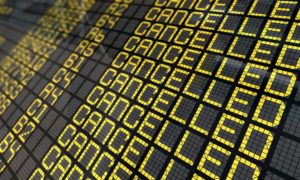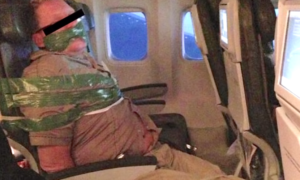Airlines are in a constant struggle to surpass competition, with EU flights available for the price of a decent meal.
In some cases, the cost of the way to the airport is more expensive than the ticket itself. Ryanair CEO Michael O’Leary even hopes to give away seats at zero cost within the next 12 years.
Meanwhile, Norwegian will soon offer transatlantic flights for just $69.
But how is any of this possible, and how can profit be made with such discounted fares? The solution: cost-cutting. There are numerous ways in which carriers save on spending, and it’s almost always at the expense of passengers.
- Basic economy fares.
Services that were once considered necessities included in the ticket price are taken away and offered as optional paid extras. British Airways has confirmed they will even begin charging for hot water.
(refund.me’s extra costs calculator above demonstrates how cheap fares can very quickly become expensive).
- Airlines sell tickets, not seats.
Passengers may choose their seats at an added price, or else be randomly allocated. This is, of course, why over-bookings are becoming more common: companies will often sell more tickets than they have seats in expectation of no-shows.
Aircrafts are remodeled with more seats crammed in. As a result, there is less leg room, and people are often forced to check their carry-on luggage into the cargo hold despite being promised a carry-on allowance.
- Automated processing.
Ticket and check-in processes are now mostly automated to save on paid staff. As a result, it’s a lot harder to get help from employees when needed. Ryanair even charges passengers who forget to check-in online with a €45/£45 fee, while the free check-in window was recently shortened to only 4 days.
- Fuel hedging
The dramatic fall of fuel prices over the past two years was not reflected in ticket prices. Rather than offering even cheaper fares, airlines use fuel hedging to save on future costs.
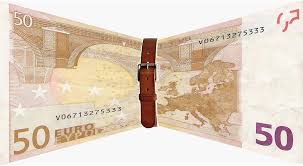 Fuel hedging is the process of signing contracts that lock in the current price of fuel for coming years, therefore allowing companies to directly benefit from the cheaper cost rather than their customers.
Fuel hedging is the process of signing contracts that lock in the current price of fuel for coming years, therefore allowing companies to directly benefit from the cheaper cost rather than their customers.
- Short turnaround times at airports
Budget airlines have extremely short turnarounds between flights, allowing them to cut costs by owning smaller fleets and operating more flights per day. This results in even more delays for passengers.
- Extra estimated flight time
 Estimated flight times for short flights are generally longer than actual flight times. This allows carriers to “make up” for lost time due to departure delays, as the official delay recorded (and that which is important for claiming compensation) is when the airline arrives, not when it departs. So even if a plane takes off with a significant delay, it has extra-calculated time to reach its destination.
Estimated flight times for short flights are generally longer than actual flight times. This allows carriers to “make up” for lost time due to departure delays, as the official delay recorded (and that which is important for claiming compensation) is when the airline arrives, not when it departs. So even if a plane takes off with a significant delay, it has extra-calculated time to reach its destination.
With all of this in mind, it’s no surprise that flight delays, cancellations and over-bookings are becoming more and more common.
In 2016, refund.me recorded over 1800 cancellations and 5200 delays eligible for compensation under EC Regulation 261/2004. This does not take into account delays and cancellations caused by extraordinary circumstances or ones that took place entirely outside the EU.
In fact, such things are so expected that Ryanair includes a levy of €2.50 to compensate for additional costs as a result of passenger claims. So every time you purchase a ticket with Ryanair, you’re paying extra for a pre-empted delay that hasn’t yet occurred, essentially forcing customers to pay for their own future compensation. Surely that’s the biggest trick of them all?


